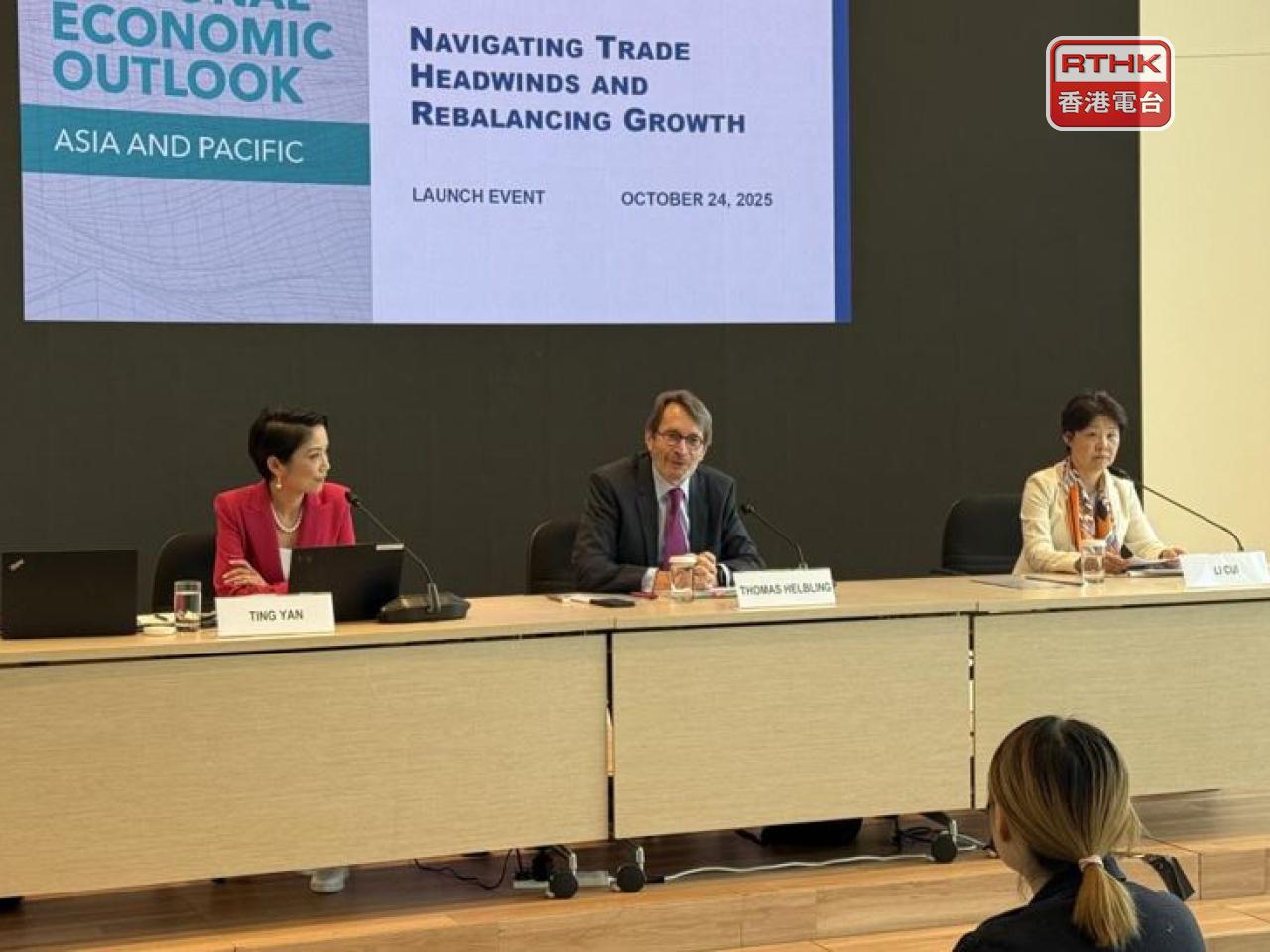The International Monetary Fund (IMF) on Friday warned that Asia's annual economic growth pace could slow down to 4.5 percent for 2025 in spite of a stronger-than-expected performance in the first half.
However, it revised up its figure for Hong Kong.
The prediction came as the global financial body released its Regional Economic Outlook for Asia and Pacific 2025 report, which noted that while Asia remains the fastest-growing region in the world, growth would "moderate" in the second half, with the full-year rate to be 0.1 percent lower than last year's 4.6 percent.
It also predicts that the regional economic growth would slow down further to 4.1 percent in 2026.
Thomas Helbling, deputy director at the IMF's Asia and Pacific department, noted that the region has shown resilience in the face of rising tariffs so far.
But he warned that there are still downside risks – as the region grapples with a series of "concerning issues", ranging from ageing populations to weaker productivity.
"As most recent developments indicate, the dust on tariffs has not settled yet, and risks of renewed escalations of trade tensions and pressures for more geo-economic fragmentation remain," Helbling said.
"Similarly, risk premium and interest rates could rise again, especially if trade policy uncertainty or political tensions intensify."
Helbling called on policymakers in the region to take steps to mitigate the impact of trade shocks, such as by making use of monetary policies to lower interest rates, adopting targeted fiscal measures to support domestic demand and building up stronger social safety nets.
"There is [also] a much-needed push for streamlining regulations to enable the private sector to rise to its potential and strengths," he said.
Helbling noted that Hong Kong, as an international financial centre, could ride on opportunities brought by regional development.
“Hong Kong is an international financial center because of its strong regulations, strong human capital basis, strong infrastructure environment, both in digital infrastructure and logistical infrastructure", he stressed.
"As long as Hong Kong continues to maintain these factors that have underpinned its strength as a regional trading hub, as a financial center, it should continue to benefit from the opportunities in the region.”
The IMF earlier upgraded its forecast for the city's economic growth for the year to 2.4 percent, up by 0.9 percentage points compared to its previous forecast in April.





